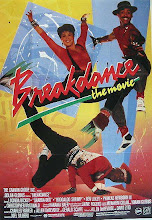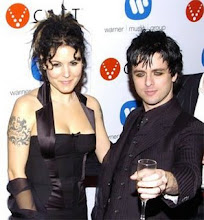Orchestral Manoeuvres in the Dark (también abreviado como OMD) es un grupo de Synth Pop y New Wave cuyos fundadores son naturales de la península de Wirral, Inglaterra.
OMD graba para Virgin Records.
El grupo fue fundado por Andy McCluskey (voz principal, bajo, teclados) y Paul Humphreys (teclado principal, voz, coro), que forman la voz del grupo hasta que en 1989 el grupo se separa. McCluskey retuvo el nombre del grupo y continuó grabando y dando giras con el nombre de OMD.
Actualmente se han vuelto a juntar para rememorar sus mejores tiempos y crear una nueva era de la música electrónica.
A Continuación su Biografia en Ingles y Presentaciones del Grupo :
Founder members Andy McCluskey and Paul Humphreys had originally been inspired by the experimental electronic music of German bands such as Kraftwerk and Neu! Working with radio sets and home made synthesisers, Humphreys and McCluskey christened themselves VCLXI (after a valve diagram on the sleeve of Kraftwerk's Radioactivity album) and began their own musical experiments. This, however, was still a side project the pair indulged in on odd weekends while they were active in local bands such as Equinox, Pegasus and The Id. Although they had gained a lot of experience from working in a traditional band environment, it was never quite the creative platform they were looking for. It was time for a new approach.
Naming themselves after one of their own early songs, Humphreys and McCluskey launched their own unique style of catchy electronic melodies that helped form OMD's reputation for intelligent pop. Back then, to burden your band with such an unwieldy name as Orchestral Manoeuvres In The Dark might have seemed unwise, but the obvious commercial appeal of their music provoked enough interest that it eventually led to Factory Record?s Tony Wilson offering them the chance to cut their debut single Electricity on the Factory label.
Electricity (and its flip side Almost) perfectly captured OMD's infectious blend of melody and melancholia. Electricity, with its frenetic dance rhythm, rapidly became OMD's theme song and maintained its status as a live favourite up to the present day. Attracting the interest of Virgin, OMD signed to their subsidiary label Din Disc in 1979.
After a brief period of touring, notably as support for Gary Numan, OMD quickly established themselves with a number of classic singles. Messages, with its simple but engaging melody, managed to get OMD into the public eye in 1980 by reaching No. 13 in the UK charts. Later the same year they made the UK top ten and scored their first international hit (5 million sales) with the dance pop of Enola Gay - an up tempo number inspired by the plane that dropped the atomic bomb on Hiroshima.
The success in 1980 helped OMD to rapidly become one of the UK?s premier pop acts. Their use of extra personnel for live performances led to Humphreys and McCluskey recruiting people in the studio as well with the band soon established as a four piece outfit with the assistance of Martin Cooper (keyboards, saxophone) and Malcolm Holmes (drums).
OMD's 1981 album, the ethereal Architecture & Morality proved to be one of their finest moments. Blending choral effects and wistful melody the album produced three classic singles: Souvenir with its bittersweet Humphreys vocal, the religiously inspired Joan Of Arc and its epic follow-up Maid Of Orleans. All three singles secured a top 5 chart position and by 1982 had turned OMD into household names.
With 3 hit albums and a string of million selling singles it seemed that the band had a Midas touch. It was about to desert them with the release of their most radical album to date.
The 1983 album Dazzle Ships described a fractured futurist soundscape of ideas that drew on everything from East European radio broadcasts to industrial robots for influences. Although the album concealed some fine pop songs, its lack of critical and commercial success was perhaps responsible for OMD taking a more cautious musical path in the future.
OMD's fifth album Junk Culture from 1984 saw the band steering closer to a more traditional band approach. The instant pop of Tesla Girls, percussive dance flavour of Locomotion and pastoral, dreamlike quality of Talking Loud And Clear proved that they could still deliver classic 3 minute pop songs, while retaining a flavour for the unusual.
Producer Stephen Hague was drafted in for the 1985 album Crush and the subsequent 1986 album The Pacific Age. Hague managed to give the songs on both albums a polished edge, while retaining an essential energy that was vital to the songs. Singles such as So In Love and (Forever) Live & Die drew on OMD's flair for writing engaging melodies, while demonstrating that they were taking much more of a traditionalist approach to song production.
This period also saw the band touring extensively in North America. If You Leave, specifically written for the John Hughes movie Pretty In Pink, was a huge success. However, the consistent schedule of touring took a toll on the band both professionally as well as personally and the 1988 single Dreaming was, at the time, the last single written by Humphreys and McCluskey.
Finally, deciding the time was right for an OMD revival, Andy McCluskey and Paul Humphreys reunited alongside former band members Mal Holmes and Martin Cooper. In 2007 they embarked on an extensive UK and European tour showcasing their classic Architecture & Morality album. As well as playing the album in its entirety, the band also presented a stage show of their most classic hits to a spectacular visual backdrop.
The 2007 Architecture & Morality tour served as a reminder of what an engaging band OMD were live. They had lost none of the power or the impact that they had demonstrated on those early 80?s performances. With a new album on the way and more live performances scheduled for the future, OMD continue to delight and entertain audiences globally.
Suscribirse a:
Enviar comentarios (Atom)




































































































































No hay comentarios:
Publicar un comentario